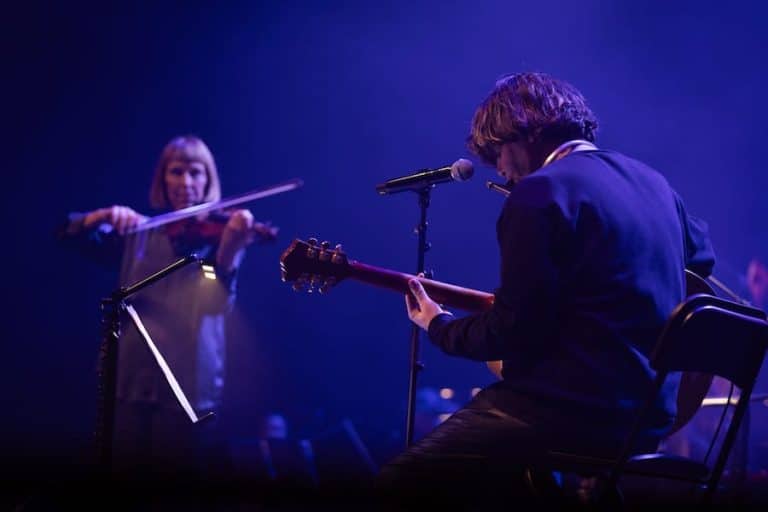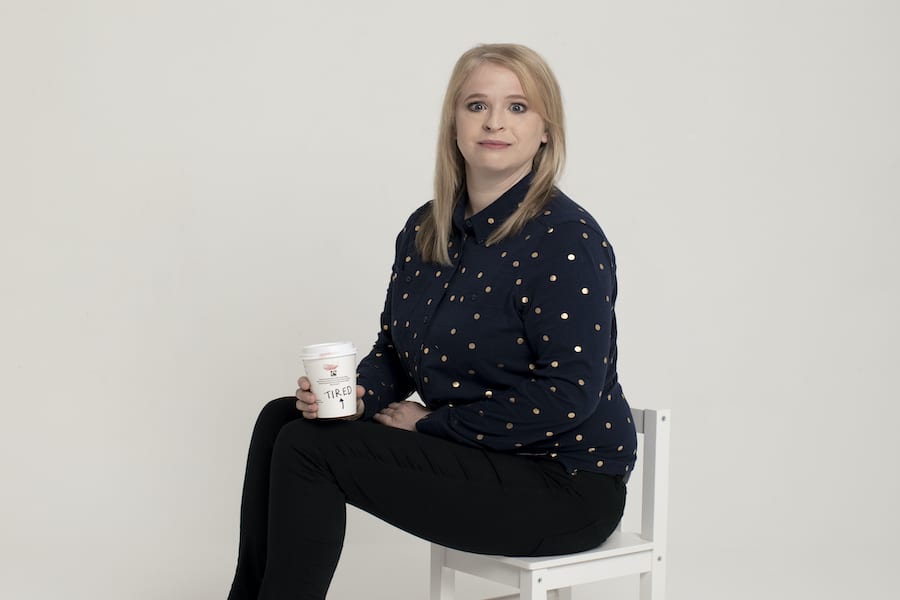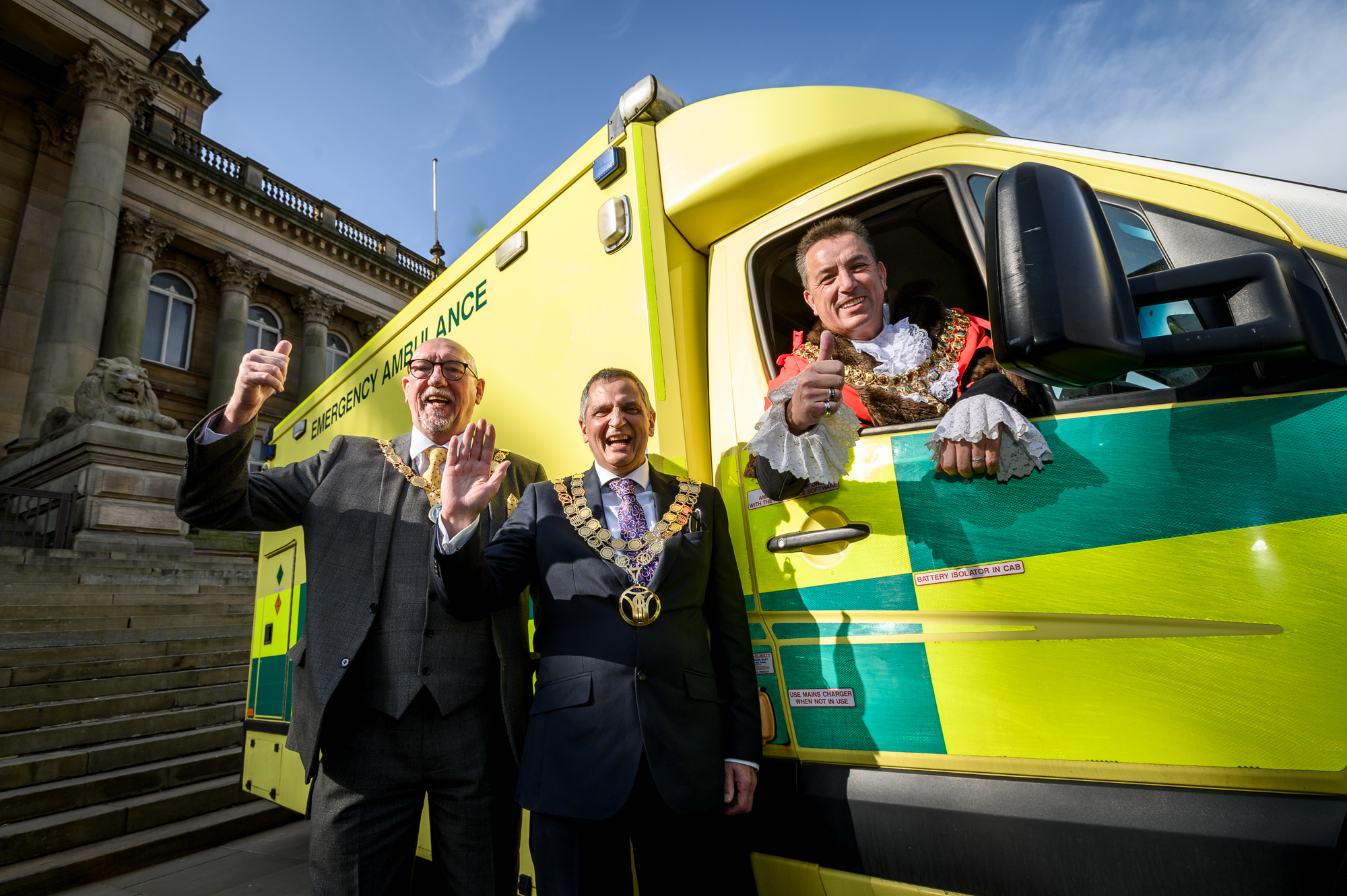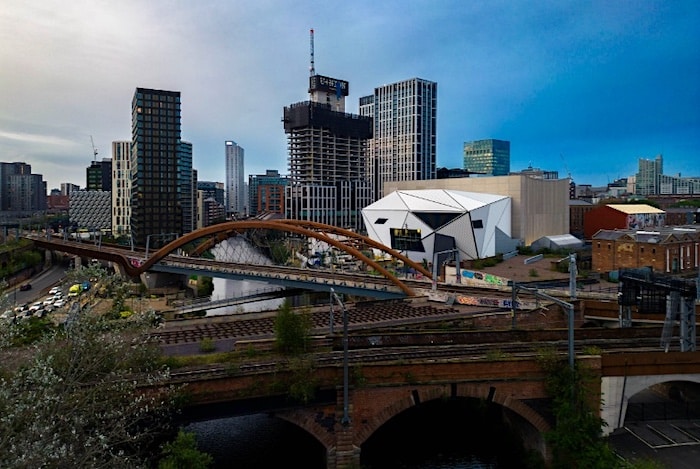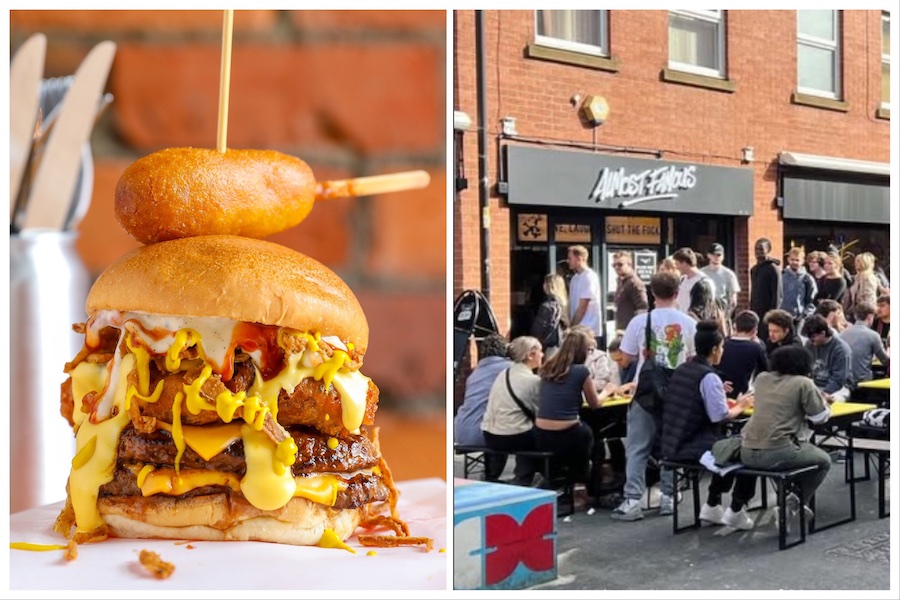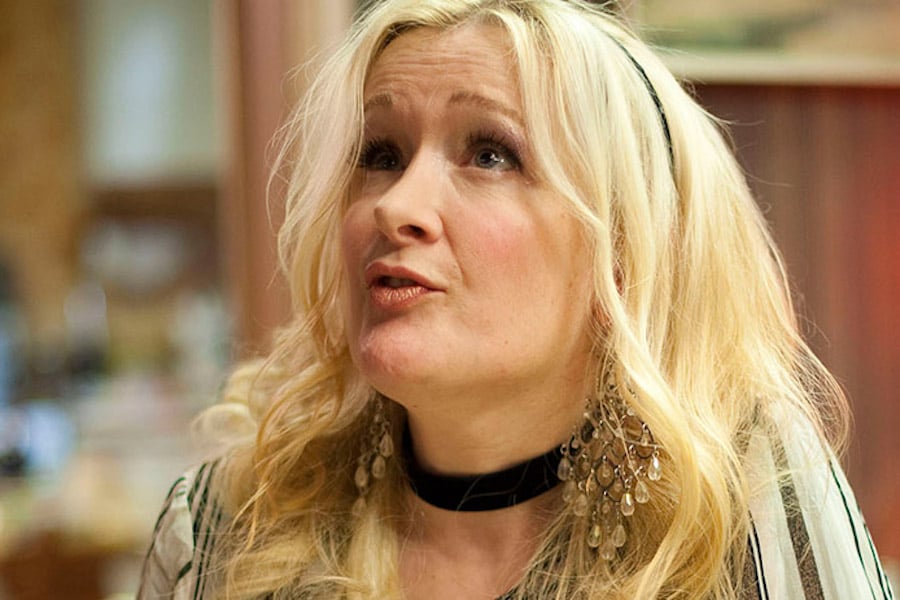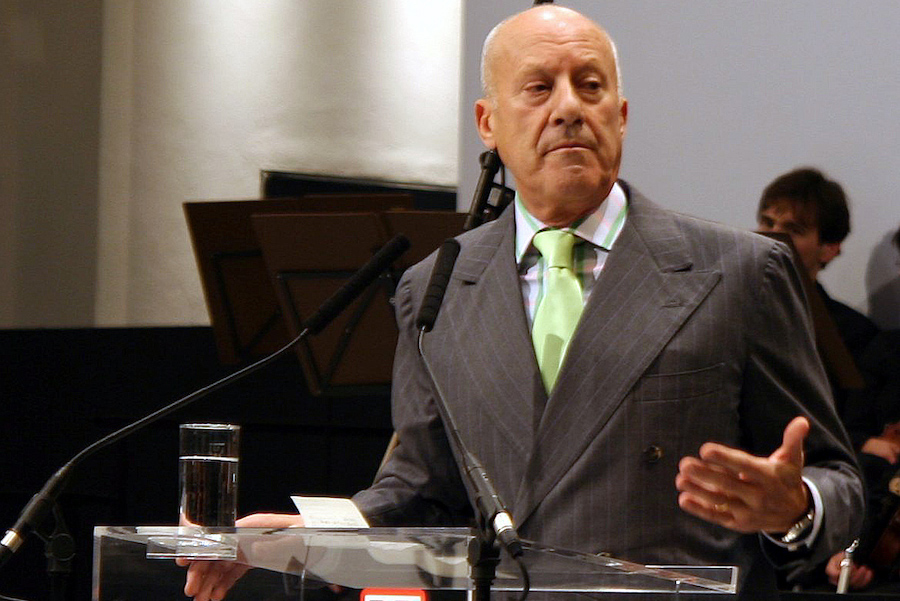The Women in Comedy Festival is showcasing Manchester’s amazing female comics
- Written by Thom Bamford
- Last updated 1 year ago
- City of Manchester, Comedy, People
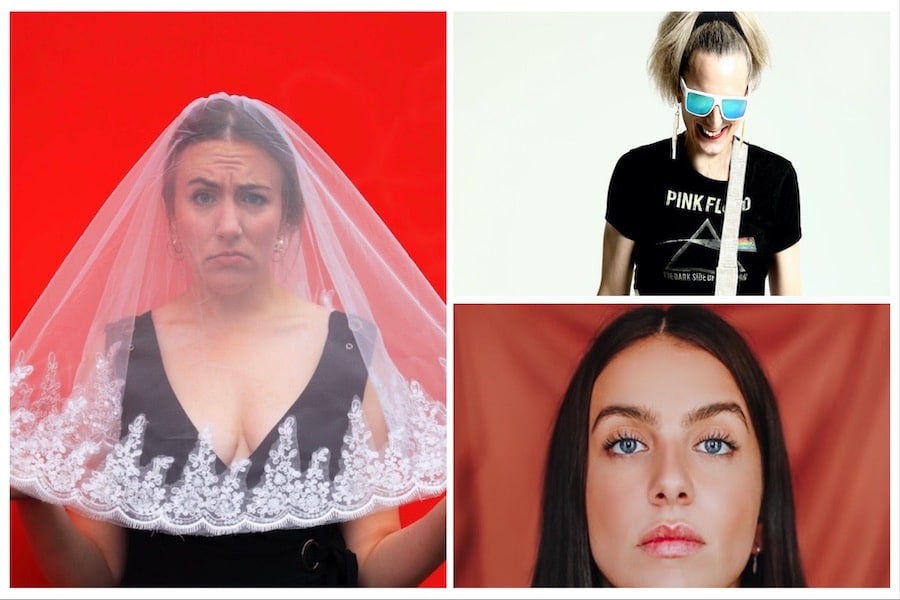
Manchester and stand-up comics are a match made in heaven.
We’ve produced countless side-splitting comics that can bring the house down in a heartbeat.
The Women in Comedy Festival marks a decade of spotlighting the uproarious talent of female comedians.
Since its inception in 2012, this annual celebration has grown exponentially, proving that the demand for female comedians is stronger than ever.
Organised by Jessica Toomey and Hazel O’Keefe, this year’s festival promises to be a momentous occasion.
From October 6th to 15th, The Frog and Bucket in Manchester will echo with the hilarious performances of these incredible women, showcasing the diverse and dynamic world of comedy.
So today, we’re going behind the scenes to meet five extraordinary comedians who have not only mastered the art of making people laugh but have also triumphed over the challenges of a historically male-dominated industry.
They share their inspiring journeys, comedic inspirations, and insights into the ever-evolving comedy landscape.
As we dive into their stories, we shed light on the significance of events like the Women in Comedy Festival, where female voices take centre stage, proving that comedy knows no gender boundaries.
Get ready to be entertained, enlightened, and inspired by these comedic trailblazers as they take over the stage, one laugh at a time.
Charlotte Cropper
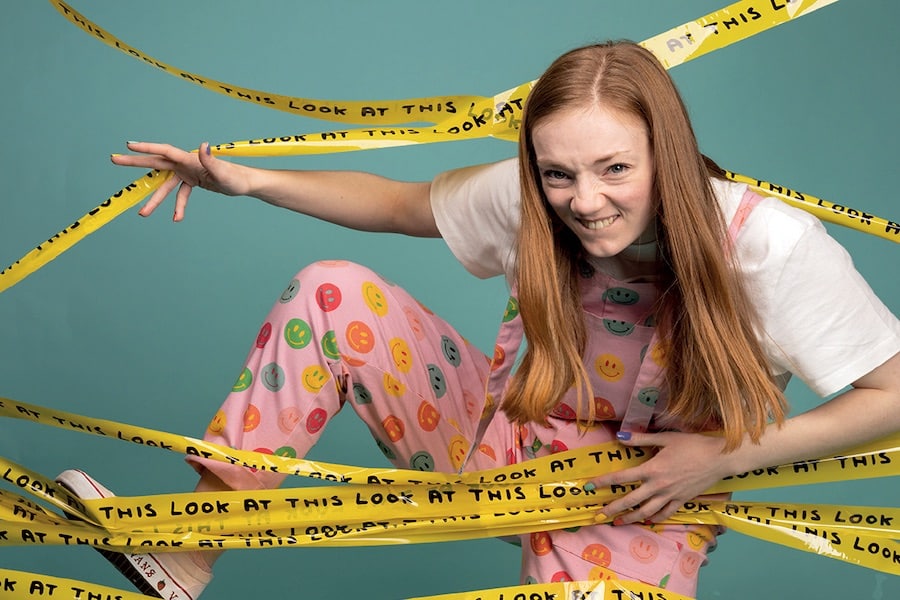
Hayley Ellis
Can you share your journey into comedy and what inspired you to pursue a career in this field? Were there any particular comedians or experiences that influenced you along the way?
Growing up alongside a sibling with complex additional needs, it’s humour that gets you through – and so as a child, I quickly became a pocket-sized entertainer.
I started performing to more than just my immediate family when I moved to Manchester for University in 2018. I joined the University of Salford’s Comedy Society and was chosen for the University’s Edinburgh Fringe Comedy Showcase, which was such a formative experience.
Your first Edinburgh is always going to be intense, but as a shy 19-year-old, from a small town in Nottinghamshire who was being independent for the first time, you can imagine how that experience completely changed my life!
When I was starting out, I performed musical comedy – except I didn’t play any instruments and I couldn’t sing. Real quality stuff.
Somehow, with my silly raps, I got through to the Chortle Student Comedy Award Finals in the summer of 2021, which was also when live comedy started to make a return.
After the finals, I had the realisation that making comedy and performing comedy was all I wanted to do. From this point, I left my wannabe musical comedy origins behind and started to experiment with the crazy concept of…just talking to an audience – and never looked back!
So many comedians have influenced me, not only in my style and personally what I find funny, but also in how to navigate the industry and advocate for positive change. To save everyone’s time scrolling through a long, long list of names, I would say Amy Gledhill and Kiri Pritchard-McLean have been the biggest inspirations to me.
Being a female comedian in a historically male-dominated industry can come with unique challenges. What are some of the hurdles you’ve faced, and how have you overcome them?
I am still very new to the game in the grand scheme of things, and I am lucky to have peers and those more experienced in the comedy industry looking out for me and supporting me, but I have still sometimes faced unwanted comments and behaviours this early in my career.
I am so grateful for the creators, funders and supporters behind organisations such as Get Off Comedy, an Industry born-and-funded HR that aims to eradicate Sexual Harassment within Live Comedy, and The Owl Network, a peer support group for female and non-binary stand-up comedians across the UK, which both make this industry a safer and less lonely place to work. I hope both of these organisations continue to grow in strength and support – my comedy career would not be the same without them.
Manchester has a rich comedy scene. How has the city influenced your comedic style and material? Are there any aspects of Manchester’s culture or atmosphere that you find particularly comedic or inspiring?
Manchester is home to some of the best comedy nights I’ve ever played. The city is where I first started performing and it remains my favourite place to gig. When you combine a great nightlife atmosphere, with the friendliness of promoters and fellow acts, and feeling “at home” in the city, it’s magic.
Particularly in the Northern Quarter, the audiences that come out to live comedy there are always so enthusiastic, ready to have a fabulous night, and best of all, incredibly dressed, which is great for me as I can pick up #styleinspo during the breaks (mainly Lucy & Yak).
The alternative comedy scene in Manchester is absolutely amazing and I LOVE going to watch shows as a punter – shoutout to The Jain Edwards Show and Adult Film Club (not as dirty as it sounds).
The Women in Comedy Festival has played a significant role in promoting female comedians. Can you share your thoughts on the importance of events like this in showcasing and supporting women in comedy?
It’s essential that we continue to make, support and engage with events such as the Women in Comedy Festival, which are dedicated to showcasing a diverse line-up of talent, to make sure comedy continues to become a more diverse, more positive place to work in and to encourage the next generation to not be afraid to get involved, to assure them that yes, they are welcome, and that yes, there is room for them at the table.
This was part of the reason why I recently created my own alternative noughties-inspired comedy night, @CroppaChoppa’s Slumber Party, to offer a comedy night experience that is friendly, safe and fun, for both the audience and the acts.
As an act, the festival is more than just performing your show; Aimee and Jess from the Women in Comedy Festival have set up a fantastic support page, which allows you to network with fellow female comics from across the country, and access webinars and workshops that embolden you as a performer. I feel so honoured and lucky to be able to take part in this year’s festival with my debut show Good Girl Gone Rad.
Can you share your journey into comedy and what inspired you to pursue a career in this field? Were there any particular comedians or experiences that influenced you along the way?
I always enjoyed from an early age making people laugh. I did for a while pursue a career in acting but it ultimately wasn’t for me as nobody wants you To play a funny Lady Macbeth. I got into comedy through joining a comedy course. I didn’t know all about the open mic scene until I attended this and it opened up this whole new strange, quirky and ultimately very addictive world of comedy to me.
Being a female comedian in a historically male- dominated (feels generally this is true in terms of who we see on our TV screens but happy to be corrected) industry can come with unique challenges. What are some of the hurdles you’ve faced, and how have you overcome them?
It think things like the women in comedy festival and bookers becoming more diverse is great progress in this industry. When I started the leap from open mic to full time its was rare to be on the bill with more than one female
act. Now it’s becoming more the norm to be on a more balanced line up and the audiences in turn aren’t seeing this as unusual.
Manchester has a rich comedy scene. How has the city influenced your comedic style and material? Are there any aspects of Manchester’s culture or atmosphere that you find particularly comedic or inspiring?
I lived in Manchester for 15 years and adore the city. Ive made some of my best friends and memories here. It’s where I started stand up and it’s home to some of my favourite ever gigs. The people I’ve met and the experiences I’ve had here shaped my stand up and I’ll always be forever grateful to Manchester. Plus it’s home to Coronation Street what’s not to like.
The Women in Comedy Festival has played a significant role in promoting female comedians. Can you share your thoughts on the importance of events like this in showcasing and supporting women in comedy?
I’m very grateful to the festival for giving the opportunity to be seen by new audiences who may not have heard of me or seen me before. Representation is so important, it teaches audiences that all sorts of people can be funny. If a promoter makes sure their line ups are diverse then the audience starts to lean in and see that it’s better when all comics have something different to add to the night.
Jenny Hart
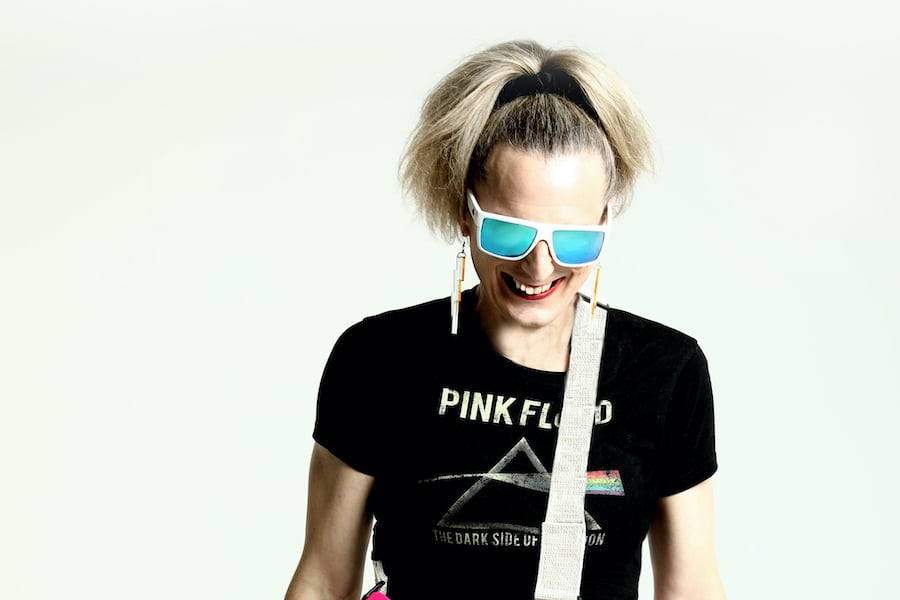
Can you share your journey into comedy and what inspired you to pursue a career in this field? Were there any particular comedians or experiences that influenced you along the way?
I had a brush with comedy at university just singing a funny song I’d written about the Bearded lady of my local village possibly being Father Xmas.
Although I didn’t know it the comedy stage felt a viable option when I was looking for ways to come out as Trans.
My thinking was that I’d rather people laugh at me on stage in a controlled environment than in the street, little did I know it would be a mixture of both.
I concocted a stage name, dressed up as a girl with an ill-fitting wig and some heels I’d practiced in at home and travelled to London to a drag bar for a comedy competition.
I came second, a running theme that would be the hallmark of my comedy journey but I love being the bridesmaid.
I enjoyed the comedy and the draw of the stage but being out with the wind whipping up my skirt for the first time was the only thing I wanted so comedy was just a bi-product. As a kid I was always enamoured by Victoria Wood and her ability to inhabit characters in a loving laughable way and I guess this was in my head when I created my own character, but really it was me.. JennyBSide
Being a female comedian in a historically male-dominated industry can come with unique challenges. What are some of the hurdles you’ve faced, and how have you overcome them?
Oh wow! Where to start! I began as JennyBSide on the drag scene because I had no plan to be a comedian and although there was fierce competition on the circuit the lack of women was only really highlighted when I moved onto comedy.
Drag is a hugely male dominated industry though ironically as women… but vice versa?… How many Drag Kings do you know? Exactly!
As soon as I started merging into the comedy circuit the scene was very different.
Arrogance, banter, ego… it’s all in there from the off like a BMW driver on the motorway… constantly nudging you to get out of the way and it’s a rough ol’ ride. We have to fight against that overbearing rhetoric that women aren’t funny even though some of the best comics around are women and groans about our body autonomy and of course we are a minority so big dick energy rules the roost in comedy.
I had a lot of promoters flat out say, you’re not for my club, so I just worked on getting better so I could bypass them and move on up the ladder. It’s nice when the same promoter books you several years later and you know that you’ve proved them wrong without doing anything other than being funny.
Manchester has a rich comedy scene. How has the city influenced your comedic style and material? Are there any aspects of Manchester’s culture or atmosphere that you find particularly comedic or inspiring?
A lot of people think that London is the home of comedy but the North really is the heart.
I started in London but was drawn to Manchester, where I now live, because of the abundance of gigs, talent, audiences wanting to laugh and people that are rooting for you on and off the circuit. I’ve found my place here and it’s awesome.
The Women in Comedy Festival has played a significant role in promoting female comedians. Can you share your thoughts on the importance of events like this in showcasing and supporting women in comedy?
At its core the Women in Comedy Festival is doing the one thing that comedy nights are struggling to do and that’s to have more than one female act on a line up.
But also by programming it as a festival it’s a chance to highlight all the names you might not know and bring them together to perform in their own curated shows.
The diversity of comedy on offer is a treasure trove of talent and fun, why not dip your toe in the water and see if you can discover someone new to laugh along with.
Rebecca Anderson
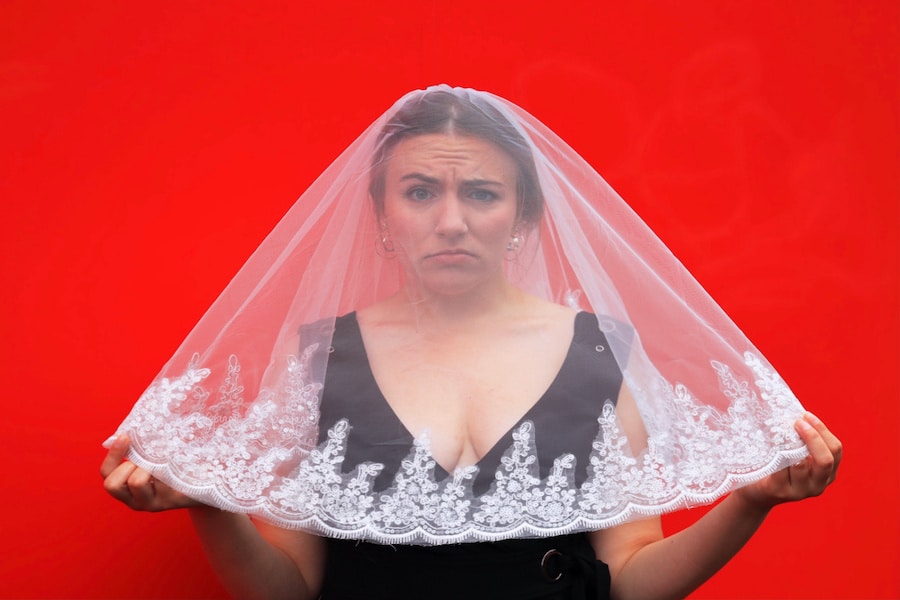
Can you share your journey into comedy and what inspired you to pursue a career in this field? Were there any particular comedians or experiences that influenced you along the way?
– I’ve always loved performing and have been trained as a classical opera singer.
I love communicating stories with people and comedy comes very easily when telling stories. I love watching Victoria Wood’s work, Flo and Joan, and comedians who share their every day stories and make people laugh.
Being a female comedian in a historically male-dominated industry can come with unique challenges. What are some of the hurdles you’ve faced, and how have you overcome them?
In opera and most theatre the funny characters are most often written for men, and so I’ve found it tricky to allow myself to create funny characters because in the field I was trained in there is little to go on. I once played the role of one of the ugly step sisters in a production of Cinderella and LOVED it because the characters were written to be funny. I use that as an example on an almost daily basis, that it’s ok to be funny.
Manchester has a rich comedy scene. How has the city influenced your comedic style and material? Are there any aspects of Manchester’s culture or atmosphere that you find particularly comedic or inspiring?
A lot of my comedy comes from me being exotic as a Scottish person / a Scotsman abroad which is a lot easier in England than it is in Scotland!
Manchester’s welcoming atmosphere makes it so easy to perform here, the people are so supportive and want you to do a good job.
The Women in Comedy Festival has played a significant role in promoting female comedians. Can you share your thoughts on the importance of events like this in showcasing and supporting women in comedy?
Women don’t have anywhere near as many opportunities, the characters aren’t written for them, there aren’t spaces for them in the media, and society has not learned to find women funny.
It’s therefore so important to showcase what people can do, and I’m so grateful for this brilliant opportunity with the Women in Comedy Festival
Soph Galustian
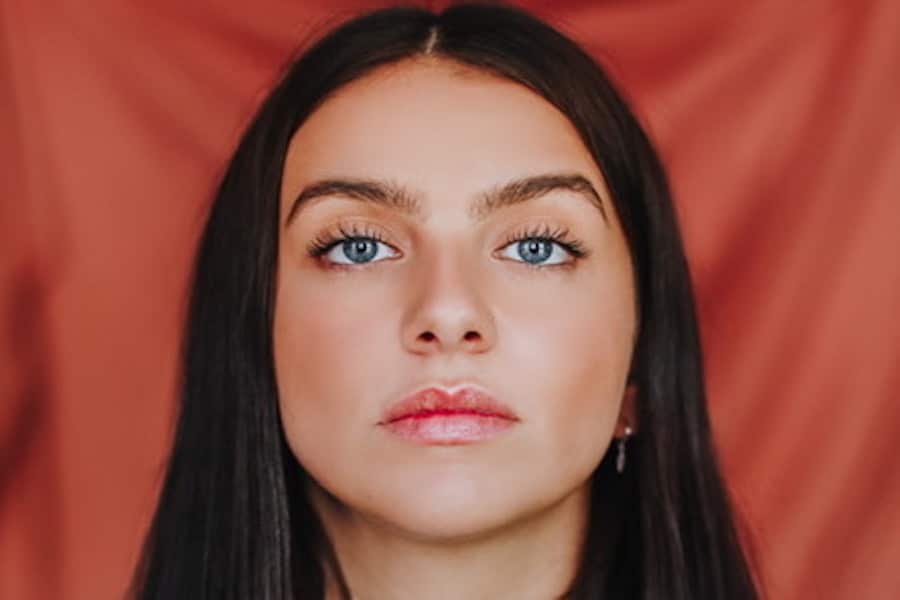
Can you share your journey into comedy and what inspired you to pursue a career in this field? Were there any particular comedians or experiences that influenced you along the way?
As cliché as it sounds, I’ve always wanted to pursue a career in comedy.
I didn’t understand how it worked when I was little, but I just knew I was obsessed with making people laugh.
During the dreaded lockdown, I was fed up of not doing anything so I channeled my frustration into creative energy! I had wrote some short comedy sketches and posted them on Instagram.
I forwarded the sketches to hundreds of celebrities in the industry such as; writers, producers, directors, singers, even Michelle Obama (yes, that’s true).
I was desperate for somebody to see my work – a few instagram bans and a lot of ignored messages later – the fabulous Daisy May Cooper loved my work and shared it to her profile! This generated a lot of positive attention for me, eventually leading to my first job which was writing and starring in my own short comedy on BBC Three.
Being a female comedian in a historically male-dominated industry can come with unique challenges. What are some of the hurdles you’ve faced, and how have you overcome them?
I grew up benefit class in Stockport, so as you can imagine the thought of working with the likes of BBC, CH4, CH5, Universal etc seemed very far away from my reality. I find that the industry is overloaded with middle class nepotism. It’s incredibly difficult to get your foot in an already heavy door unless you’re rich and/or have connections. That’s why I resorted to what I know best, mithering. Just because I didn’t have any money, or experience or connections didn’t mean I was less talented or worthy than anyone else. I made sure to not forget that. My favourite motto is “ya don’t ask, ya don’t get”.
Manchester has a rich comedy scene. How has the city influenced your comedic style and material? Are there any aspects of Manchester’s culture or atmosphere that you find particularly comedic or inspiring?
Of course. I pride myself on being a working class northerner and I absolutely use this to my advantage in my stand up. I lived in London for 7 years and started stand up when I was there, I would often talk about Manchester and they’d laugh, but at me. Ultimately a laugh is a laugh, but when I perform at home – you laugh with me.
Because you get it – nothing beats this for me.
We have so many quirks that nowhere else in the world possesses. Such as the Manchester soundscape – kids screaming followed by a mum at the end of her tether “PACK IT INNNNNNNN”. Gives me goosebumps really.
The Women in Comedy Festival has played a significant role in promoting female comedians. Can you share your thoughts on the importance of events like this in showcasing and supporting women in comedy?
In a world and an industry dominated by men it is hugely important for events like the Women In Comedy festival to take place. It gives us a safe space to not only be heard but to prove that if given the same opportunities, we will succeed just as much if not more.
You can find out more about the Women in Comedy Festival by clicking here
- This article was last updated 1 year ago.
- It was first published on 6 October 2023 and is subject to be updated from time to time. Please refresh or return to see the latest version.
Did we miss something? Let us know: [email protected]
Want to be the first to receive all the latest news stories, what’s on and events from the heart of Manchester? Sign up here.
Manchester is a successful city, but many people suffer. I Love Manchester helps raise awareness and funds to help improve the lives and prospects of people across Greater Manchester – and we can’t do it without your help. So please support us with what you can so we can continue to spread the love. Thank you in advance!
An email you’ll love. Subscribe to our newsletter to get the latest news stories delivered direct to your inbox.
Got a story worth sharing?
What’s the story? We are all ears when it comes to positive news and inspiring stories. You can send story ideas to [email protected]
While we can’t guarantee to publish everything, we will always consider any enquiry or idea that promotes:
- Independent new openings
- Human interest
- Not-for-profit organisations
- Community Interest Companies (CiCs) and projects
- Charities and charitable initiatives
- Affordability and offers saving people over 20%
For anything else, don’t hesitate to get in touch with us about advertorials (from £350+VAT) and advertising opportunities: [email protected]
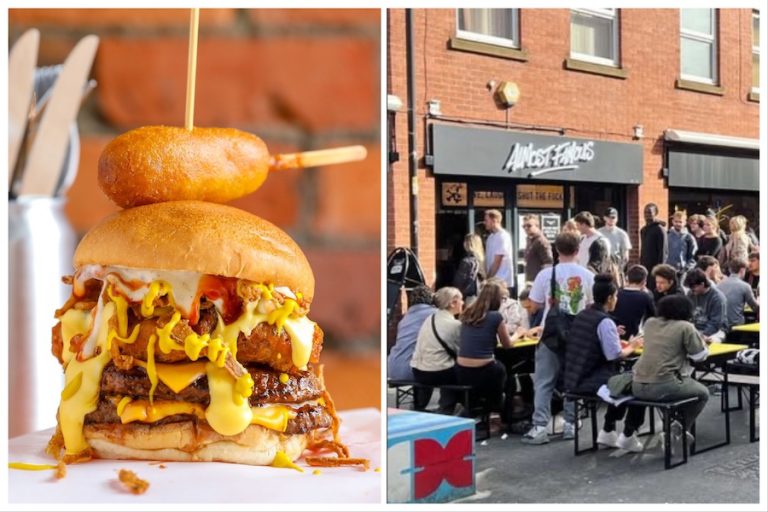
Almost Famous brings back its most legendary burger – for one month only
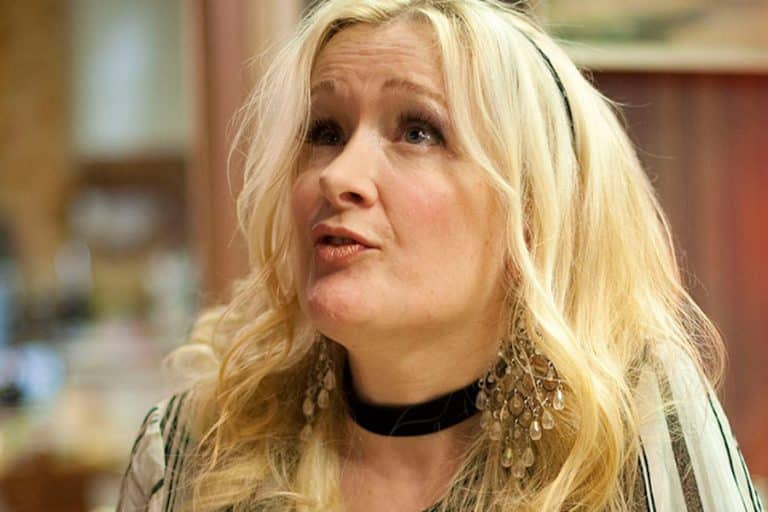
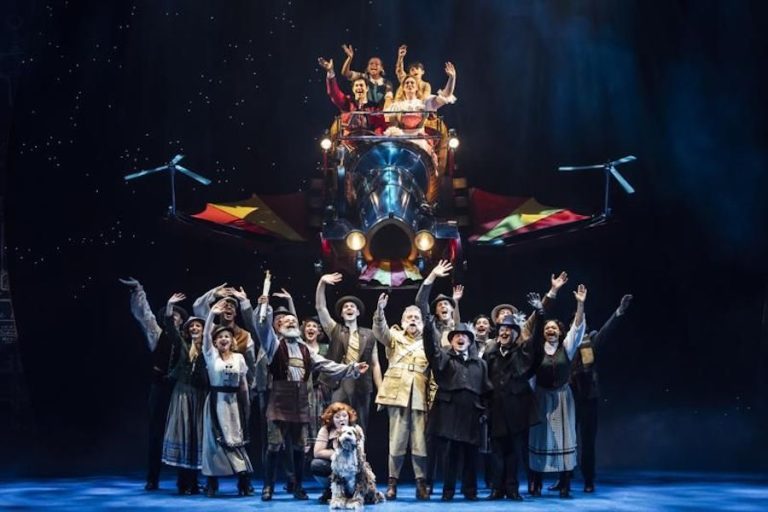

The world-renowned Mancunian architect behind Old Trafford’s future

Manchester United reveal plans for new 100,000-seater stadium – set to be UK’s biggest
